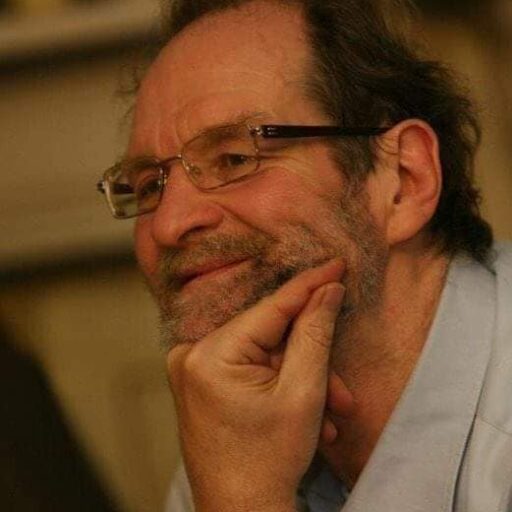In his biography of Lenin, Georg Lukács claimed that ‘the actuality of revolution’ was at the core of his thought. By this, he meant that Lenin restored Marxism to the working class revolution as a practical reality. Revolution was not just a distant dream or a rhetorical flourish for those waving red flags. It guided the tactics and strategy of any serious Marxist.
John Molyneux was a serious Marxist – a Bolshevik to his fingertips. In a recent interview with Rebel, John told how he visited New York in 1968 and, after being robbed on his first night, stayed in a $1 dollar a night flop house. There he encountered people with socialist ideas and, having experienced the extreme inequality of the city, these resonated with the radicalism that was already germinating in his brain. Returning to the University of Southampton, he got involved in the Vietnam Solidarity Campaign and witnessed at first hand the brutality of police when they suppressed a demonstration calling for solidarity with the Viet Cong. He travelled to Paris when that great city rose in revolt against its Gaullist regime, joining twenty young workers as they slept in an occupied house. These experiences convinced him of three things 1) revolution was possible 2) the agent of revolution was the working class 3) it was necessary to build a revolutionary organisation which challenged both the reformist leaders of the labour movement and the then strong Communist parties which had buried the idea of socialism from below.

John was known throughout the global left for the many books he wrote. I still remember reading his book on Leon’s Trotsky’s Theory of Revolution, now unfortunately out of print. It was an honest assessment of a great revolutionary which subjected his ideas to a critical scrutiny. This was the hallmark of John’s approach – he rejected dogmas in favour of honestly looking at how revolutionaries could advance. In The Real Marxist Tradition, he polemicised against every shortcut that appeared to offer a way to socialism that did not involve the self-activity of workers. In Lenin for Today, he challenged the fashionable dismissal of the founder of the Bolshevik Party and against the vague calls for a coalition of separatist social movements, arguing instead for the construction of a revolutionary party.
John had a particular talent for putting complex ideas in more simple terms, without ever patronising his readership. He took arguments seriously, getting at their internal logic and was a brilliant polemicist. At one stage of his life, John was a good poker player, learning to read the minds of opponents all the better to beat them. He applied some of the same methods to political arguments. He thought carefully about opposing ideas, drew out the logical absurdities of some positions and drove home in the clearest fashion his own conclusion. This talent was most in evidence in the ‘simple’ pamphlets he wrote. If you ever want a refutation of the most common arguments used against socialists, just check out his short pamphlet Is Human Nature a Barrier to Socialism.
John was a proud member of the International Socialist Tendency and represented the Socialist Workers Network on its coordinating committee. He saw the IST as the bedrock from which the current of socialism from below sprung and in his last book, Selected Writings on Socialism and Revolution, dedicated it to the founder of the British Socialist Workers Party, Tony Cliff. Yet John was never an uncritical follower. He was an active revolutionary who thought deeply about how to further the project of revolutionary change. That sometimes meant thinking differently than the tradition which has trained him for many decades. Thus John enthusiastically championed how his co-thinkers in Ireland set about building People Before Profit as a transitional organisation. By ‘transitional’ he meant an organisation that, while dominated by revolutionaries, was not in itself a revolutionary organisation as it was open to those who held non-Marxist views. The aim, however, was to break out of sectarian ruts into which many small revolutionary groups had fallen. This meant conceiving of a revolutionary party as one that was not marked by decades of isolation from the working class.
When you read about the key intellectuals of the left, you rarely hear what they did in their day to day practice – short of writing. John Molyneux was different. A modest man, he played an active role in the Drimnagh—Crumlin branch of People Before Profit. He joined a regular stall and took part in many of its door knocking and canvassing. He was a key member of United Against Racism, always pushing the SWN and People Before Profit to take initiatives to combat an ideology that has its own independent existence beyond simple economic competition. In the last week of his life, he featured in an Irish Independent video challenging the racist arguments that ‘unvetted refugees’ were a threat to the good people of East Wall. He died coming home from a meeting of the Irish Anti-War Movement.
Despite working originally as an academic and being tremendously knowledgeable on art, music or history, he did not have a trace of the ‘theory is practice’ mode of academic socialists. He was an activist through and through- and still found time to write. But he also knew that activism alone was never enough – especially if it was decoupled from a Marxist understanding of the world. This is why he devoted considerable effort to promote a lively Marxist tradition in Ireland through his editorship of the Irish Marxist Review.
As one of our key activists in Waterford, Joan Quirke put it, The best tribute we can give to John Molyneux is to carry on his tradition of revolutionary socialist politics.
